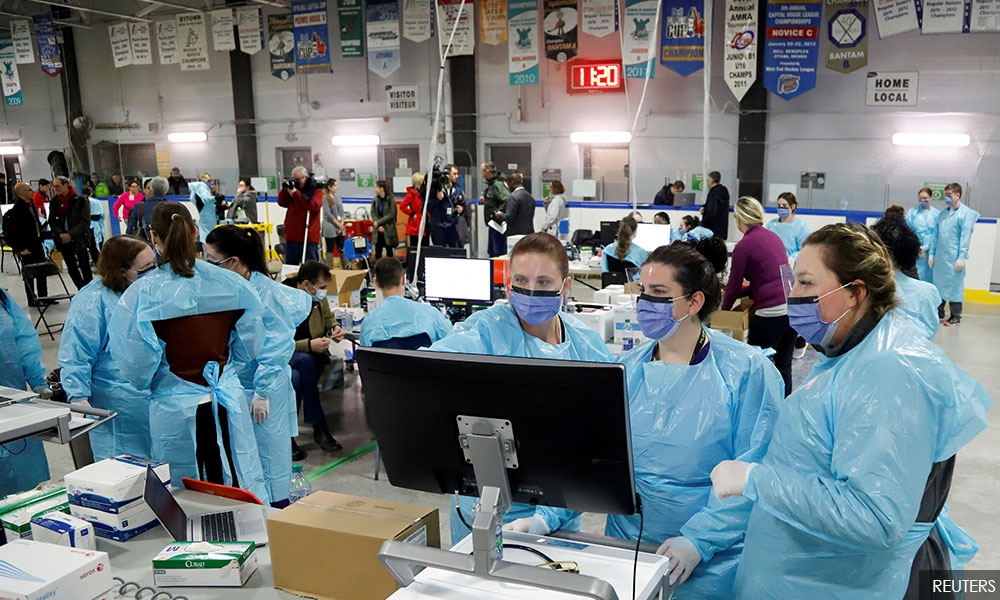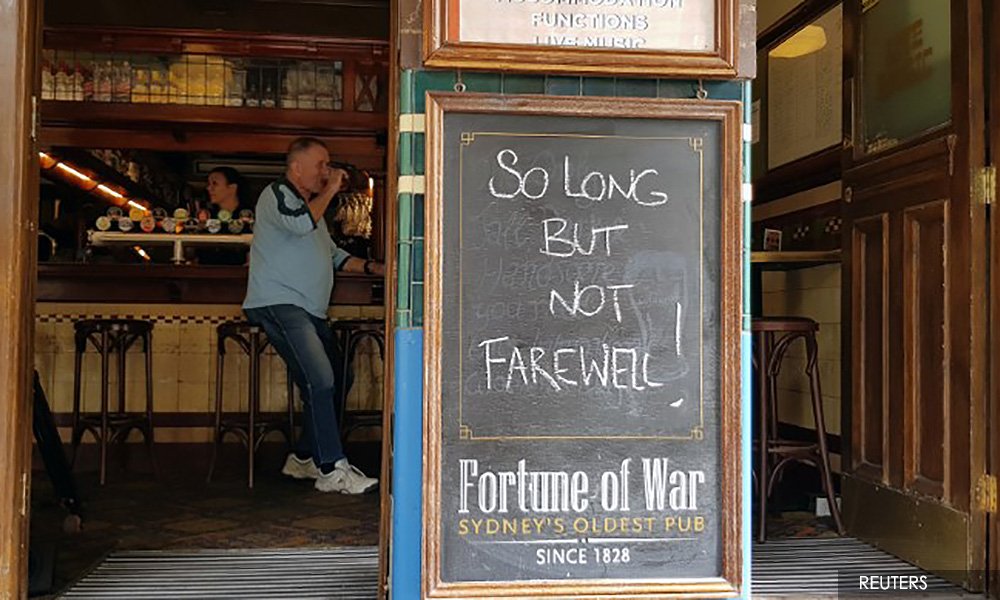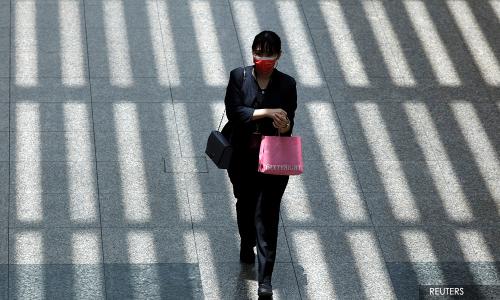Latest on the spread of the coronavirus around the world
CORONAVIRUS | Countries affected by the novel coronavirus entered another week of strict quarantine measures and several nations introduced new economic stimulus to aid citizens and companies hit by the pandemic.
Deaths, infections
More than 720,000 people have been infected across the world and around 34,000 have died, according to a Reuters tally.
For an interactive graphic tracking the global spread, click here.
US-focused tracker with state-by-state and county map, click here.
Europe
Italy's death toll fell for the second consecutive day on Sunday, but the country still looked almost certain to see an extension of stringent containment measures.
The epidemic in the United Kingdom is showing signs of slowing and antibody tests could be ready in days, a top epidemiologist said on Monday.
Russian prime minister asked regional governors to consider Moscow-style restrictions a day after the capital announced a partial lockdown, ordering residents to stay home.
Spain prepared to enter its third week under near-total lockdown on Sunday, as the government approved strengthened measures and the death toll rose to 6,528.
The number of cases in Germany has risen to 57,298 and 455 people have died.
France's death toll jumped by 13 percent on Sunday, taking the total to 2,606.
Slovenia imposed restrictions on people moving outside their local municipalities.
Americas
US President Donald Trump extended his stay-at-home guidelines until the end of April, dropping a hotly criticised plan to get the economy up and running by mid-April after a top medical adviser said more than 100,000 Americans could die from the outbreak.

Canada, where all provinces have declared states of emergency and ordered people to stay home, is not planning for the moment to use troops to help combat the outbreak, although the option remains on the table, Prime Minister Justin Trudeau said on Sunday.
President Jair Bolsonaro visited a market area just outside the Brazilian capital on Sunday to press home his case for keeping the economy ticking.
Uruguay and Bolivia confirmed their first deaths.
Argentina extended a mandatory nationwide quarantine until mid-April.
Asia and the Pacific
China reported a drop in new infections for a fourth day as drastic curbs on international travellers reined in the number of imported cases.
Japan will ban the entry of foreign citizens travelling from the United States, China, South Korea and most of Europe.
Japan's government on Monday denied rumours it was planning to declare a state of emergency from April 1.
India said it had no plans to extend the 21-day lockdown, as it struggled to keep essential supplies flowing and prevent tens of thousands of out-of-work people fleeing to the countryside.
Indonesian President said on Monday he plans to impose stricter limits on mobility between regions and to implement a large-scale policy of social distancing.
Vietnam's prime minister asked major cities to prepare for possible lockdowns as the confirmed cases reached nearly 200.
Middle East and Africa
Syria reported its first death on Sunday, as the government banned travel between governates and the army announced an end to a call-up of army reserves.
An aide to Israeli Prime Minister Benjamin Netanyahu has tested positive but initial findings indicate she had not posed an infection risk to the 70-year-old leader.
South Africa's confirmed cases reached 1,280 on Sunday and the death toll doubled to two, as the country entered the third day of a national lockdown.
Nigeria ordered the cessation of movement in Lagos and the capital Abuja for 14 days.
Economic fallout
Oil tumbled another 8 percent on Monday and world shares buckled again as fears mounted that the global shutdown could last for months.
Japan's ruling party proposed a 60-trillion-yen (RM2.4 trillion) stimulus package, including direct spending of 20 trillion yen.
India ordered all its banks to remain open during the lockdown as part of essential services and to ensure welfare cash schemes that are part of a US$22.6-billion stimulus reach the poor.
Australia will spend A$130 billion (US$79.85 billion) to subsidise the wages of around 6 million people.

South Korea will provide emergency cash payments to many families and draw up a second supplementary budget soon.
China's central bank cut the rate on reverse repurchase agreements by 20 basis points, the largest in nearly five years, while its largest banks warned the movement restrictions could hit asset quality as borrowers struggle to repay loans.
Singapore's central bank aggressively eased its monetary policy, with the city-state's economy bracing for a deep recession.
Sweden could increase its holdings in large companies should they need taxpayer capital to ride out the economic slump, the finance minister said on Monday.
- Reuters
Keep up with the latest information on the outbreak in the country with Malaysiakini's free Covid-19 tracker.
Malaysiakini is providing free access to the most important updates on the coronavirus pandemic. You can find them here.
Help keep independent media alive - subscribe to Malaysiakini.
RM12.50 / month
- Unlimited access to award-winning journalism
- Comment and share your opinions on all our articles
- Gift interesting stories to your friends
- Tax deductable

